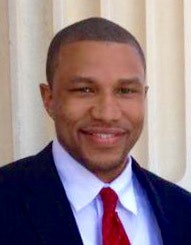University of Alabama head football coach Nick Saban signed a contract extension last week that will pay him around $11.125 million dollars per year. This news sparked the conversation that frequently occurs when these kind of contracts get signed: Should college athletes get paid?
 Dr. Marcus Bright
Dr. Marcus BrightThere are certainly palpable arguments on each side. On one hand, there are questions of how or if athletes in non-revenue producing sports (any sport other than football or basketball on most campuses) should get paid. Additionally, there are a number of universities with Division I programs that operate their athletic departments in the red or very close to it.
Opponents of paying athletes often argue that players are already being paid through their scholarships that include tuition, room, board, and sometimes a small stipend. Still, there seems to be something unjust about coaches being paid inordinate amounts of money while the families of many of their players live in poverty.
The system of big-time college football is set up so that everyone gets a large piece of the lucrative financial pie except for the actual players. Worse yet, college football players are forced to stay at the institution for three years, even if they have the ability to turn pro after one year.
Former Louisiana State University running back Leonard Fournette, for example, was forced to take another year of physical pounding this past year, despite the fact that he could have been a top-five NFL draft pick before last season. The system is just patently unfair when it comes to its level of compensation for players, considering the amount of revenue they often produce for the school.
In many states, the highest paid public employee is the head coach of a public university football program. This may be all well and good for those individuals, but there is often a glass ceiling for minority coaches who aspire to reach the head coaching level. There were only 11 out of 128 Black head coaches at the NCAA Football Bowl Subdivision at the beginning of last season.
The pathway to head coaching positions runs mostly through appointments to the role of offensive or defensive coordinator. Despite filling a very significant number of player roster spots, Black coordinators are few and far between. Black coaches will often be permitted to be a position coach for running backs or linebackers, but are seldom allowed to call plays as a coordinator.
One doesn’t have to look further than Saban for an example of the impact of the role of coordinator gatekeeper. A number of Saban’s coordinators have ascended to prominent head coaching jobs, including Georgia’s Kirby Smart, Florida State’s Jimbo Fisher, Florida’s Jim McElwain, South Carolina’s Will Muschamp, and Michigan State’s Mike Dantonio.
Saban seems to have no problem finding qualified Blacks to make tackles and score touchdowns for him, but finds it very difficult to put one in charge of calling his plays. It is great for Nick Saban and his family to make $11 million a year, but the players also have families. They are not all going to have NFL careers. It would be great if they could be compensated based on the resources they bring into the university.
The issue of compensation for college athletes will continue to be a quandary for the NCAA until changes are made. Adjustments either need to be made to create a more equitable distribution of revenue for players or the mandatory waiting periods for players to stay in college should be lifted. The status quo is either clear exploitation or extremely close to exploitation depending on the institution. It is time for the NCAA to rethink this issue.
Dr. Marcus Bright is a political commentator and executive director of Education for a Better America. He also serves as adjunct professor of public administration and political science at Lynn University.















